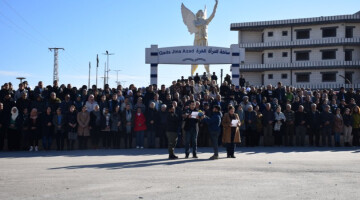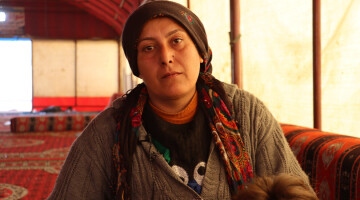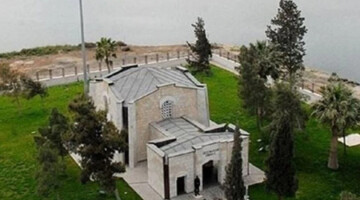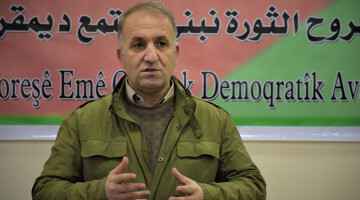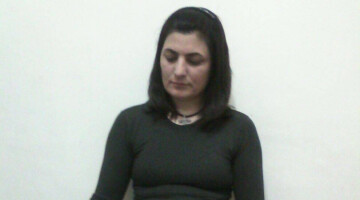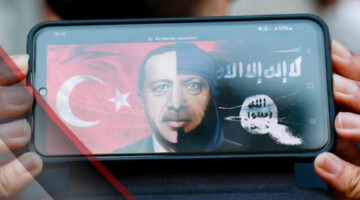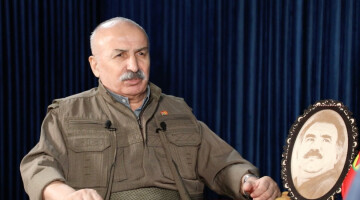The Turkish press and circles close to the government have framed the developments in Syria as a personal victory. They are seizing the shifting balances and power vacuums to pursue the eradication of the Syrian Democratic Forces (SDF) and, ultimately, to "close the book" on the Kurds. There appears to be a complete mental paralysis when it comes to the Kurds. Can those who proclaim, "Kurds and Turks are brothers; we have lived together for a thousand years," genuinely celebrate the metaphorical burial of the Kurds with such enthusiasm? Is it normal for them to be so deeply invested in and leading such efforts? Those who question or critically reflect on this situation are conspicuously absent.
In Turkey, the Kurdish population is estimated to be in the tens of millions, although the exact number remains uncertain. These Kurds live alongside Turks, attending the same schools, serving in the military, and working together in various sectors. How can peoples who coexist so intimately tolerate such oppression and suppression of one another? How can they become complicit in enabling the war-mongering elites orchestrating even greater disasters for the Kurds? These are questions worth asking. From the perspective of those who respect history and the coexistence of peoples, this reflects a complete breakdown of rationality and morality.
What have the Kurds ever done to the Turkish state to warrant this hostility? What disasters or conspiracies have they orchestrated or participated in? None.
The Kurds have been divided between four states and stripped of their political will. They have endured systematic assimilation. In this context, the Kurds are undeniably a victimized and oppressed people. Their demands are straightforward: recognition of their existence and respect for their political agency. They have not sought to divide any state, nor do they currently advocate for establishing an independent state. Instead, they emphasize a shared will to live peacefully alongside the peoples with whom they coexist. Their demands are for peace and democracy, not only for themselves but for the broader region as well. Do such reasonable demands justify the level of hostility and aggression they face?
Those who claim, "Kurds and Turks are brothers, and we have lived together for a thousand years," are actively devising and executing catastrophic plans against the Kurds in Syria. The Turkish press and leadership, brimming with enthusiasm, celebrate the victories of the Syrian National Army (SNA) and urge them to escalate their attacks on the Kurds. But who are these forces labeled as SNA? Many of them are former members of DAESH (ISIS) and Al-Qaeda, rebranded under new names and symbols. Among them are individuals involved in looting and atrocities, including foreign fighters who have engaged in widespread violence. They looted Afrin and played a significant role in ethnic cleansing. Reports from the United Nations and other human rights organizations document numerous war crimes committed by these groups. Despite this, the Turkish media and officials have glorified them as heroes. Their primary motivation for doing so is to use these forces as a tool against the Kurds and to further intensify their attacks.
The guiding principle of Erdoğan’s administration is clear: "As long as the Kurds gain nothing, let the world burn." Shouldn’t the Turkish press, political elites, and democratic forces be questioning this stance? Is it Turkey's role to whitewash the crimes of the SNA? Yet they celebrate attacks on Kurdish regions and the autonomous administration with great fervor. They seem consumed by a hysterical determination to ensure that the Kurds never benefit from the current situation—to destroy them, and to do so as quickly as possible.
Erdoğan's administration has also claimed a major victory following Hayat Tahrir al-Sham’s (HTS) consolidation of power, seeking to use it as a political weapon to suppress domestic opposition and distract from economic crises like hunger and poverty. Erdoğan is exploiting every opportunity to ensure his political survival, eyeing the chance to remain in power indefinitely.
When will the people of Turkey wake up from this spell and see reality? Is it truly in their interest to see a Taliban-like regime take root next door? The dynamics of the region are shifting rapidly, with unforeseen developments unfolding. Russia and Iran have been sidelined in Syria, while Israel is extending its influence deeper into Syrian territory, bombing strategic targets. Israel asserts that it is acting to ensure stability, claiming it does not want a strong and unpredictable regime on its border. Meanwhile, Erdoğan and his inner circle remain silent, even when it comes to groups like HTS. Now, Iraq and Iran appear to be next in line. Has Turkey aligned itself with U.S. and Israeli interests in this regard as well? What price will Turkey ultimately pay for allowing Erdoğan to meddle so deeply in Syria?
Erdoğan's government aims to crush the Kurds by deploying SNA forces against them. But this is not enough. They are directly coordinating military operations, providing air support, and inciting Arab populations in the autonomous regions to create instability and chaos. They view this as the weakest link in the Autonomous Administration and are exploiting it. Yet many voices around the world are calling for an end to violence and a resolution to the conflict. Turkey, however, is working tirelessly to destabilize the most democratic and stable autonomous regions, oppress the Kurds, and erase their political agency. They are unyielding in their hostility toward Kurdish existence. For them, principles like the fraternity of peoples, the rule of law, or moral standards are irrelevant.
Reports of massacres and revenge attacks against Alevis, Kurds, women, and prisoners in Syria are beginning to surface. It is not difficult to imagine that the reality is even worse than what has been reported. Can a democratic and stable Syria ever emerge from such a mentality?
In summary, the overarching policy toward the Kurds is one of genocide and eradication. There is no alternative discourse. The Kurdish people and democratic forces must recognize that Syria is heading toward an even darker and more uncertain future. Whatever must be done, it must be done without delay.


